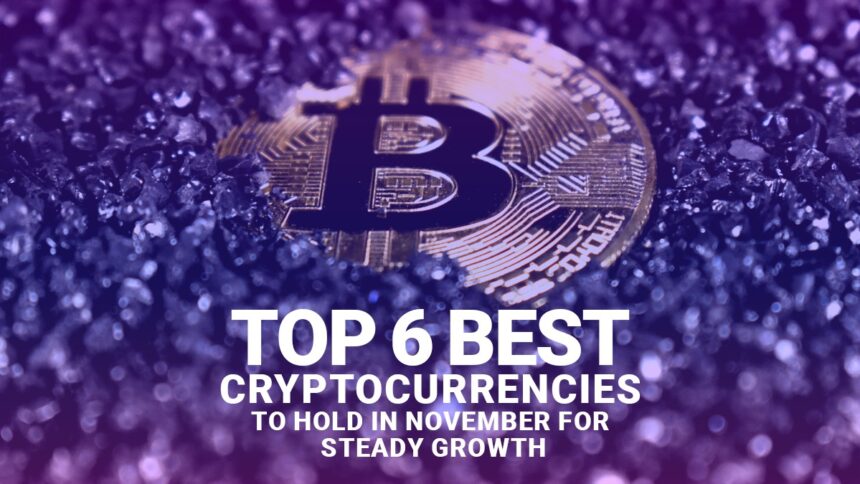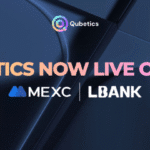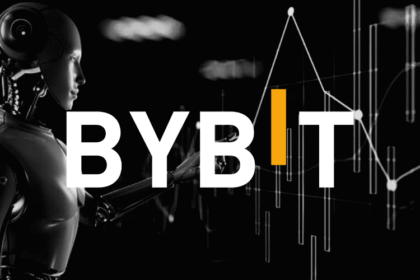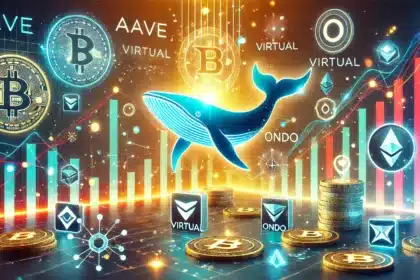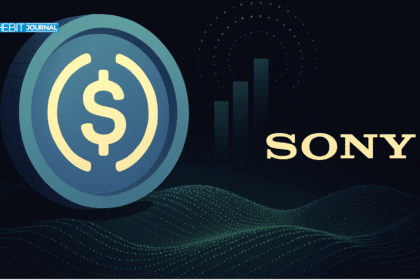As blockchain technology evolves, several platforms stand out for their unique scalability, speed, and security approaches. Each blockchain network has carved out its niche, catering to specific applications ranging from finance and content creation to secure messaging and future-proof encryption.
In this article, we’ll dive into six influential blockchain platforms—Solana, Ethereum, Cardano, Tron, Toncoin, and Qubetics—each bringing something distinct to the table and transforming industries through innovation. Whether you’re looking for speed, privacy, sustainability, or quantum-resistant security, these platforms offer solutions shaping the future of decentralised technology.
1. Qubetics: Advancing Interoperability in Blockchain
Qubetics stands out in the blockchain space with its strong focus on interoperability. Many networks are isolated in today’s fragmented blockchain ecosystem, creating barriers to seamless data exchange and cross-chain transactions. This lack of interoperability limits the potential of decentralised applications and hinders the broader adoption of blockchain technology. Qubetics addresses this issue by positioning itself as a Web3-aggregated chain that unifies multiple networks into a cohesive framework.
The Need for an Interoperable Blockchain As the demand for decentralised applications and asset exchanges grows so does the need for networks that can communicate and share data seamlessly. Qubetics aims to bridge these gaps, allowing for smooth asset transfers, data sharing, and cross-chain functionality. By enhancing interoperability and fostering collaboration across ecosystems, Qubetics unlocks the full potential of decentralised technologies, benefiting developers, enterprises, and users alike.
Key Strengths:
- Interoperability and cross-chain functionality: Qubetics’ Web3-aggregated chain model enables a unified framework for various networks.
- Enhanced collaboration across ecosystems: Qubetics encourages cross-chain innovation with seamless data exchange.
- Focus on enterprise-grade security and scalability: Designed to support high transaction volumes with minimal latency.
Qubetics is currently in Presale Phase 8, with the next phase starting every week with a 10% increase, and the final phase will see a 20% increase. At this stage, 1 $TICS token is priced at $0.0212. So far, Qubetics has raised over $2M. Over 2000 holders and 169M $TICS tokens have been sold. There will be a 10% price increase in the next phase, making this phase particularly attractive for early investors. After presale, the price is poised to hit $0.25, which means the ROI is 1079.25%.
2. Solana: Lightning-Fast Transactions
Solana is known for its exceptional speed, often processing thousands of transactions per second, a significant advantage over other blockchains. Solana achieves this through a unique Proof of History (PoH) consensus mechanism, which timestamps transactions before they are validated. This makes Solana particularly appealing for DeFi (Decentralized Finance) and NFT applications, where quick transaction speeds are essential.
Key Strengths:
- High throughput: Solana can handle up to 65,000 transactions per second (tps).
- Low transaction fees: The platform is cost-effective, making it attractive for smaller, frequent transactions.
- Developer-friendly ecosystem: With comprehensive documentation and active community support, Solana encourages developers to build decentralised applications (dApps) easily.
3. Ethereum: The Pioneer of Smart Contracts
Ethereum, the second-largest cryptocurrency by market cap, is the first blockchain to introduce smart contracts, opening doors for a wide array of decentralised applications and projects. Ethereum’s Virtual Machine (EVM) allows developers to execute smart contracts, enabling complex financial instruments, NFTs, and more. Although Ethereum faced challenges with scalability and high gas fees, its recent transition to Ethereum 2.0 and Proof of Stake (PoS) aims to make the network faster and more energy-efficient.
Key Strengths:
- Strong community and ecosystem: With a massive user base, Ethereum boasts countless dApps and DeFi protocols.
- Security and decentralisation: Ethereum’s robust decentralisation ensures a secure, censorship-resistant platform.
- Developer-centric tools: Ethereum has extensive developer resources that enhance dApp creation and adoption.
4. Cardano: Research-Driven Development
Cardano takes a scientific approach to blockchain, emphasising peer-reviewed research to ensure a robust and secure platform. Developed by one of Ethereum’s co-founders, Charles Hoskinson, Cardano is built on a unique Proof of Stake mechanism called Ouroboros, which aims to be energy-efficient while maintaining high security. Cardano’s layered architecture separates the settlement and computing layers, allowing for smoother upgrades and scalability.
Key Strengths:
- Energy-efficient PoS model: Cardano is environmentally conscious and uses far less energy than traditional PoW chains.
- Academic rigour: Each feature is thoroughly vetted through peer-reviewed research.
- Interoperability and scalability: Cardano’s layered architecture allows future interoperability with other blockchains.
5. Tron: Revolutionizing Content and Entertainment
Tron stands out for its focus on content creation and entertainment. It aims to decentralise the internet by giving creators control over their content. Using a Delegated Proof of Stake (DPoS) system, Tron achieves fast transaction speeds and high scalability. This makes it ideal for content-sharing platforms, gaming, and social networks. With low fees and high throughput, Tron is making strides in revolutionising digital content distribution.
Key Strengths:
- High scalability and low transaction costs: Tron’s DPoS mechanism supports high-speed transactions at minimal cost.
- Focus on media and entertainment: Tron emphasises decentralised content platforms, attracting many in the media industry.
- Token support: Tron allows easy creation and deployment of custom tokens.
6. Toncoin: Private and Secure Messaging
Toncoin, developed by Telegram, is designed to integrate seamlessly with messaging services, prioritising privacy and security. The TON (Telegram Open Network) leverages a multi-blockchain structure to achieve high throughput and scalability, specifically focusing on privacy. Its unique blockchain design uses sharding to split the blockchain into smaller segments, allowing faster processing and scalability.
Key Strengths:
- Privacy-focused: Ideal for secure communications and private transactions.
- High-speed transactions: TON’s sharding capabilities enable quick processing speeds.
- Seamless integration with messaging: Toncoin is directly integrated with Telegram, allowing users to manage assets within the app.
Final Thoughts
These six blockchain platforms each offer distinct strengths and specialised solutions. From Solana’s blazing transaction speeds to Qubetics’ forward-thinking quantum resistance, these networks showcase the variety and innovation within the blockchain ecosystem. Whether you’re a developer, investor, or enthusiast, exploring these platforms can provide insights into the future of blockchain technology and its role across diverse industries.
For More Information:
Qubetics: https://qubetics.com
Telegram: https://t.me/qubetics
Twitter: https://x.com/qubetics



